Iran says establishment of UN mission on last year riots ‘politically-motivated’
Iran has rejected a report by a mission mandated by the United Nations over the 2022 riots in the country, saying the establishment of such a mission by the UN Human Rights Council has been "a politically-motivated and unacceptable" move.
Kazem Gharibabadi, the secretary general of Iran's High Council for Human Rights, made the remarks at the 53rd session of the UN Human Rights Council on Wednesday, following a report by a so-called fact-finding mission on alleged human rights violations in Iran during the handling of the riots that erupted in the country last September.
The report accused Iran of meting out "harsh punishments" on people suspected of involvement in "mass protests," calling on the country to stop the executions of those sentenced to death in connection with the riots and release all those detained.
In response, Gharibabadi said the establishment of such a mechanism despite Iran acting responsibly during and after the riots is a case of double standard and hypocrisy.
The same countries that fomented the riots in Iran and of course later got caught in a similar situation provided such a mechanism, he said.
Gharibabadi said what happened in Iran last fall was “not simple and peaceful" gatherings, but violent riots and terrorist attacks engineered by think tanks in the West and carried out with the financial, arms and media support of West security services.
"Several Western countries were involved in fomenting the riots. Terrorists also entered the scene and nearly 100 persons affiliated with terrorist groups, mostly from Monafeqin (MKO), were arrested," he said.
The official said the US-based social media network Instagram allowed users to teach people how to make smoke bombs and Molotov cocktails, and in Twitter over 50,000 fake Persian-language users were created during the first month of protest to spread anti-Iran propaganda.
He also said London-based TV channels, including BBC Persian and Iran International, allocated a huge part of their programs to inciting violence and providing terrorists with a platform.
He said Iran's policy on the riots was to use minimum force against law-breakers and this resulted in law enforcement forces sustaining heavy casualties and damage.
During the three months of riots, "Over 75 law enforcement forces and people were martyred by the rioters, and more than 7,000 law enforcement forces were also injured," he said. "Also, over 2,000 places and public and private property were destroyed by the rioters."
Gharibabadi, however, said the plot against Iran was foiled thanks to massive popular support for the Islamic establishment, with the government quickly bringing the situation under control.
He said that back in early February Iran pardoned nearly all of those who had participated in the riots, excluding only a few rioters who had committed brutal crimes, and the government has also formed an independent committee addressing complaints by those impacted by the riots.
The Iranian official expressed hope that countries sponsoring the riots rectify their wrong policies and adopt realistic ones.
'West can't talk of human rights'
Gharibabadi further said Western states are not in a position to talk about the rights of women and children in Iran, while they themselves are violating the rights of women and children in their own countries.
He enumerated a number of crimes committed by certain countries against Iran, citing the role of Western states in providing former Iraqi regime with chemical weapons that were used in attacks against the Islamic Republic in 1980s, impacting thousands of Iranian women and children.
Gharibabadi also pointed to the illegal and cruel sanctions on Iran by Western countries, saying the bans have caused many Iranian women and children to suffer, slamming the punitive measures as a crime against humanity.
'France protests need to be addressed'
In his remarks, Gharbabadi also accused Western states of double standards on human rights, and expressed regret that the so-called advocates of human rights remain silent in the face of such double standard and hypocritical behaviors.
Pointing to the recent protests against police violence in France, he said the UN Human Rights Council should have held a special session to examine the situation in France.
"These days, France is witnessing the use of excessive forces against peaceful protesters, massive arbitrary arrests and widespread restrictions on internet and social media," he said, adding that the French government has even threatened to fine or sentence parents of teenage protesters to jail for attending protests.
"France is nowadays witnessing the use of excessive force against peaceful protesters, especially women and children, widespread arbitrary arrests and restrictions on the internet and social media," he said, adding that that the French government has even threatened to give parents of teenage protesters prison sentences or financial penalties.
This is while this country faces no foreign intervention and no media inciting people to take to streets, and people carry no weapons and are not after ousting the government, he added.
Countries slam Council's discriminatory practice
At the Council's meeting, a number of speakers, including representatives of Russia, China and Venezuela, rejected the fact-finding mission.
According to a summary of the meeting by the Office of the United Nations High Commissioner for Human Rights (OHCHR), those opposing the mission expressed opposition to politically-motivated country-specific resolutions and expressed concern over this continued selective and discriminatory practice that violated the principles of universality and constituted double standards in addressing human rights issues.
Some speakers condemned the establishment of the fact-finding mission on Iran’s last year riots as “a manifestation of the non-constructive approach, and the mandate was nothing but a series of attempts to target Iran and interfere in its affairs.”
The speakers opposing the report said the reporting mechanisms and procedures pretended to make “impartial” assessments of the human rights situation, but they based their reports on unreliable sources that lacked credibility.
"The Council was urged to pursue a path of constructive engagement with Iran with genuine dialogue and cooperation," said the summary.
Some speakers also condemned the use of illegal unilateral coercive measures imposed on the people of Iran, and demanded their immediate lifting to enable the Iranian people to fully enjoy their basic rights.
The so-called fact-finding mission on Iran was created by the UN Human Rights Council under an anti-Iran resolution ratified at a special session on Iran riots in November.
Iran at the time condemned the resolution, saying “multifaceted political goals” were behind such anti-Iranian measures.
Tehran also said it would not cooperate with the mission, stressing that the country had already formed a national fact-finding committee to look into the events.
Activists announce 'Freedom and Sumud Flotilla' to challenge Gaza blockade
VIDEO | Rome residents demand end to ties with Israeli firms
VIDEO | Pakistan Senate condemns ‘hexagon of alliances’ as Indian PM visits Israel
VIDEO | Founder of French pro-Palestine NGO appears before court
VIDEO | Modi’s Israel visit sparks opposition, domestic backlash
VIDEO | Continuous war on media in occupied West Bank
Kabul rocked by explosions as Pakistan launches airstrikes
Iran Armed Forces warn US of severe consequences for any aggression


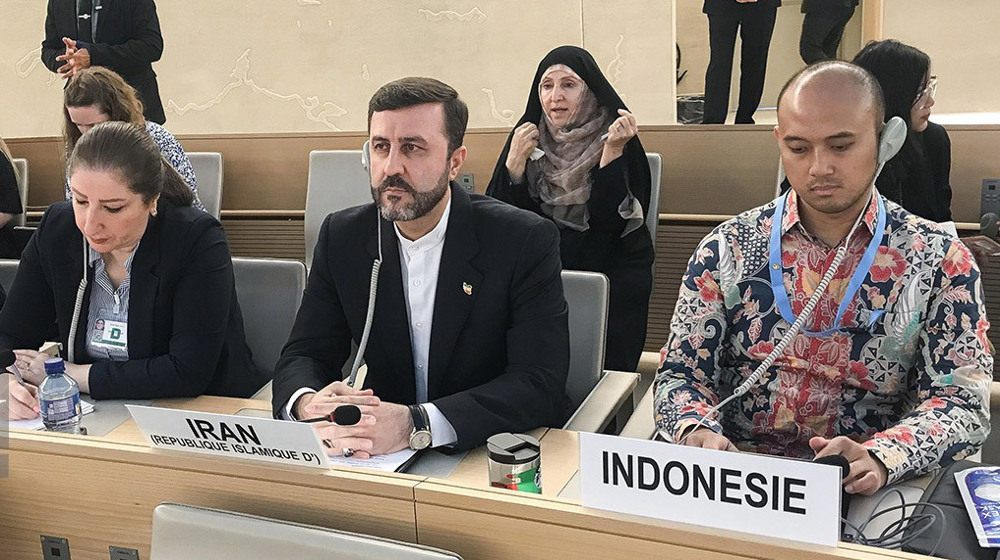
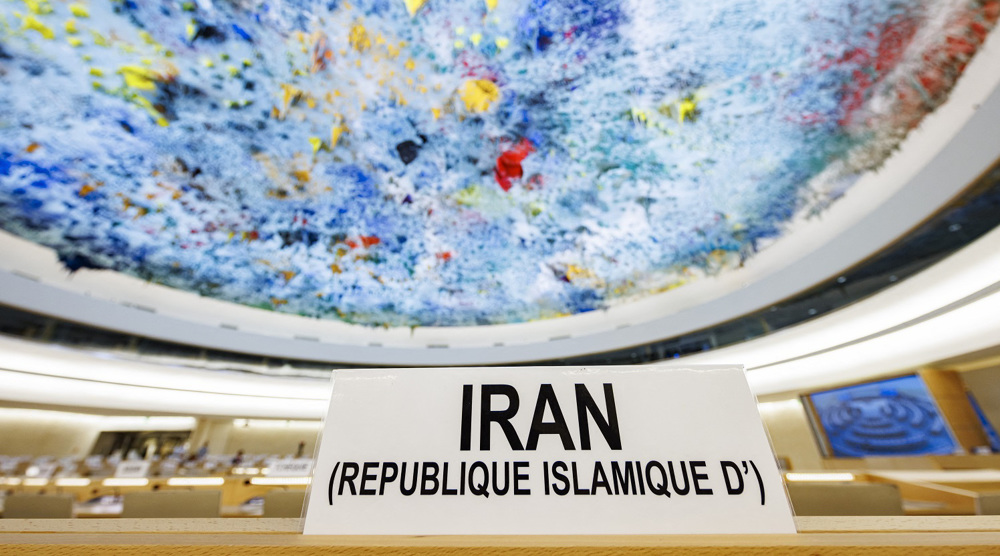
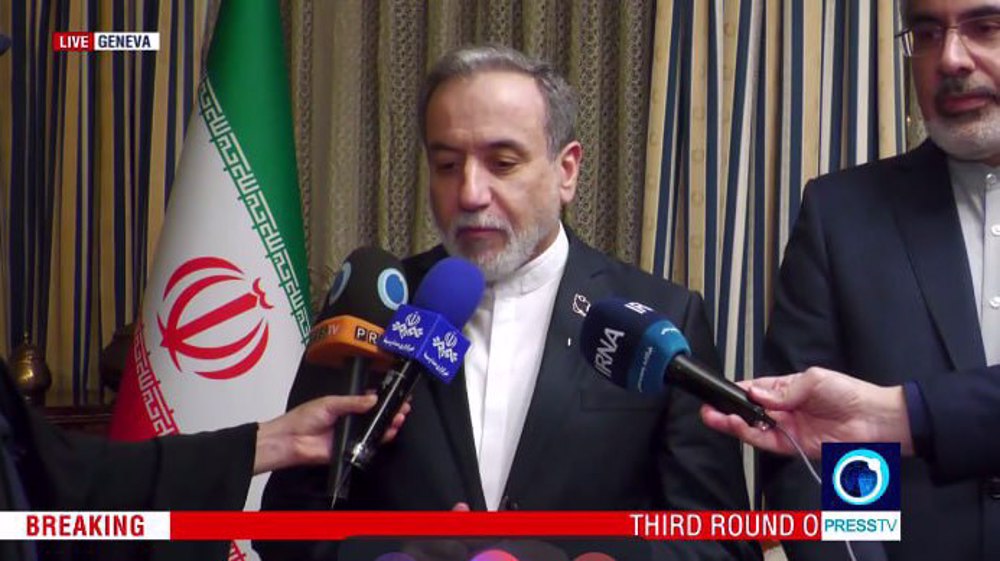
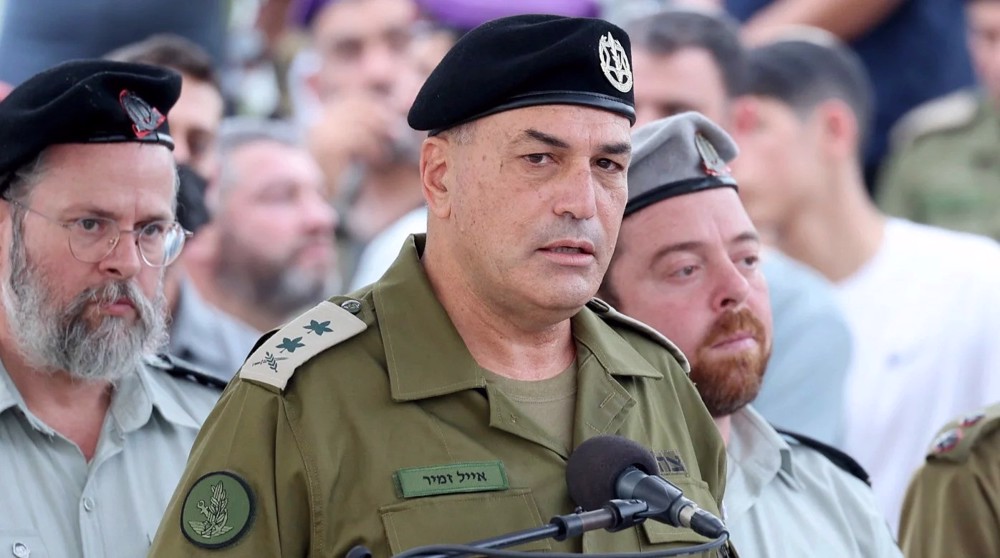
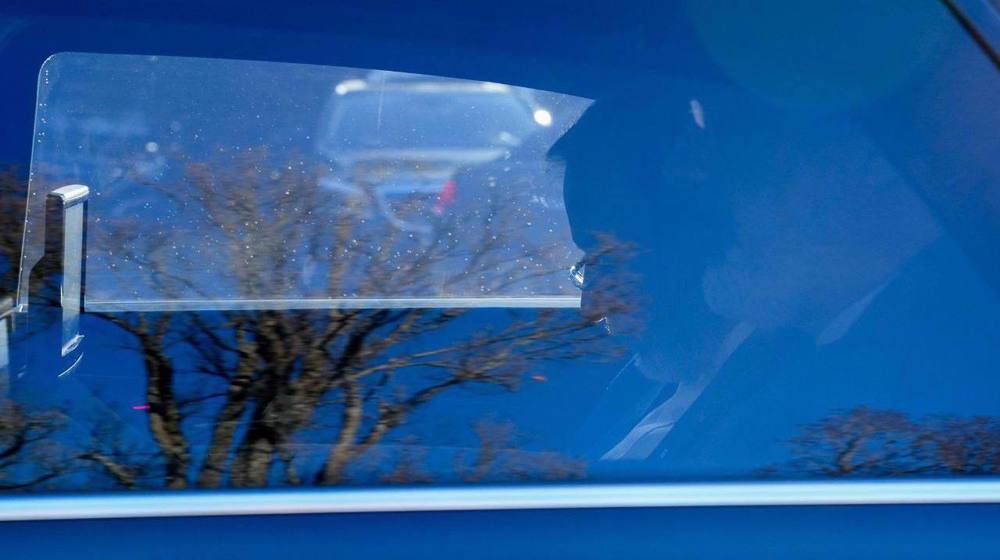



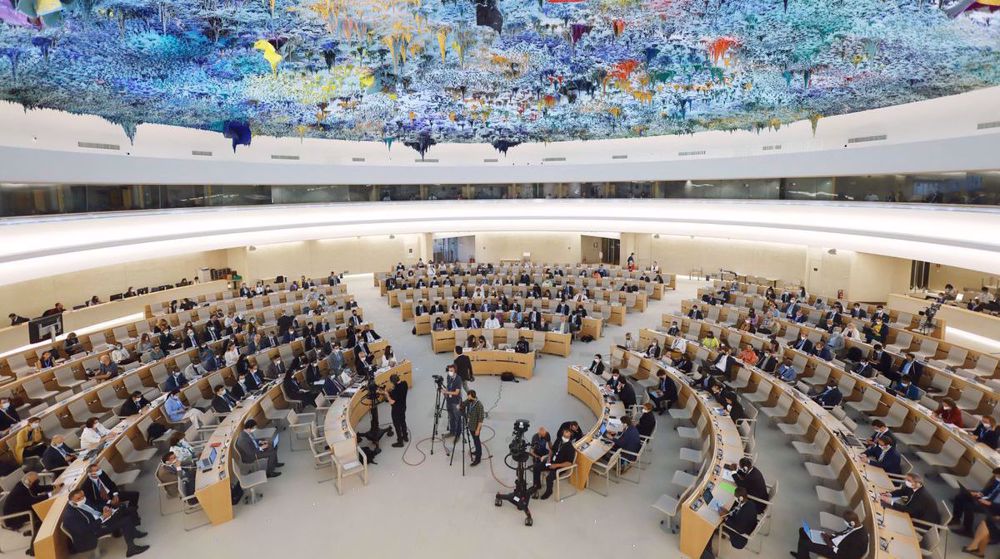
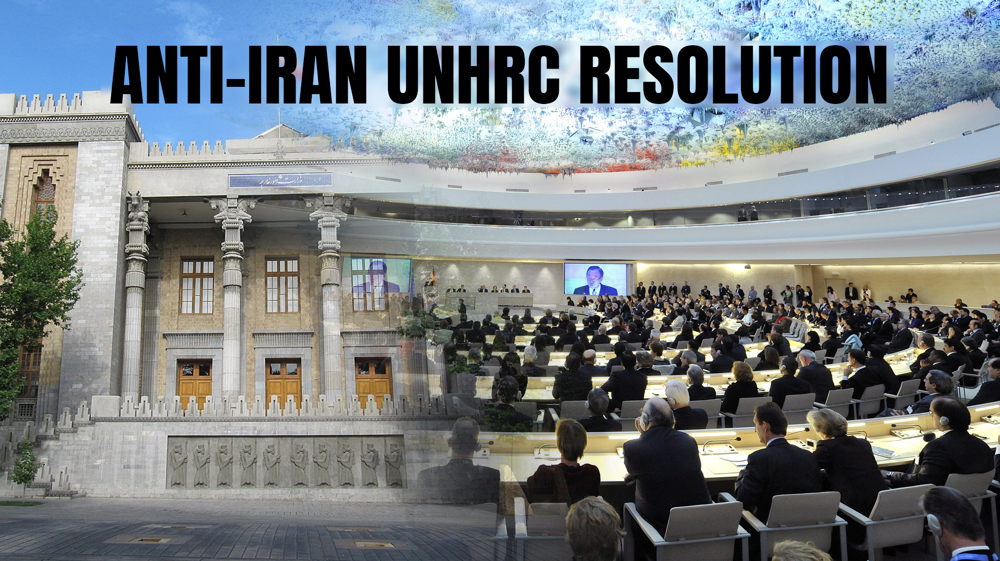
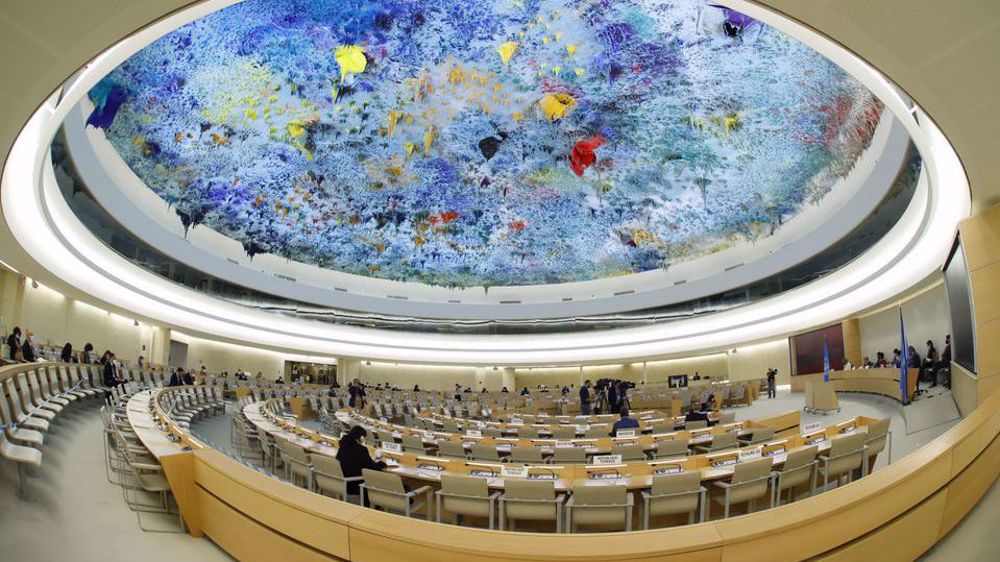
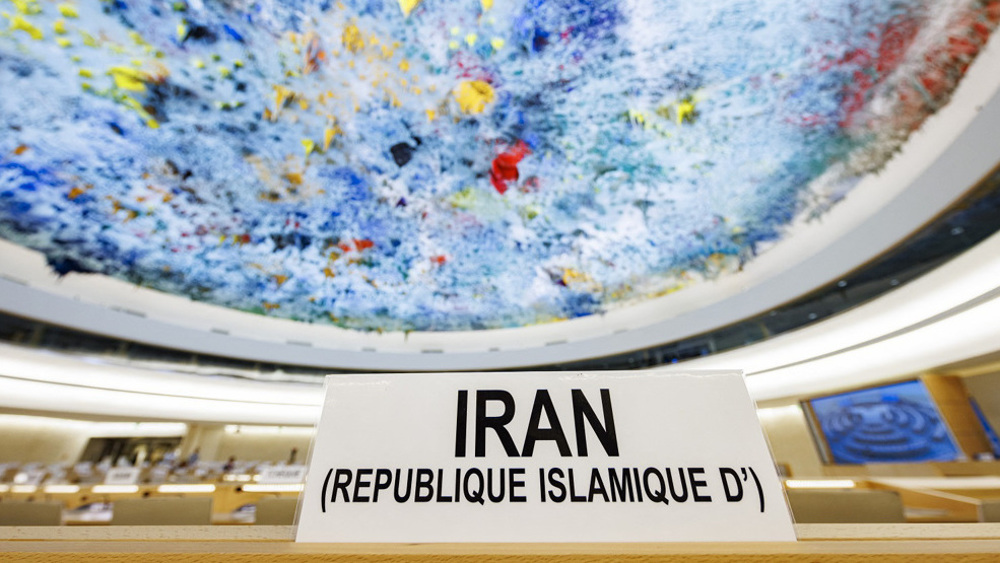
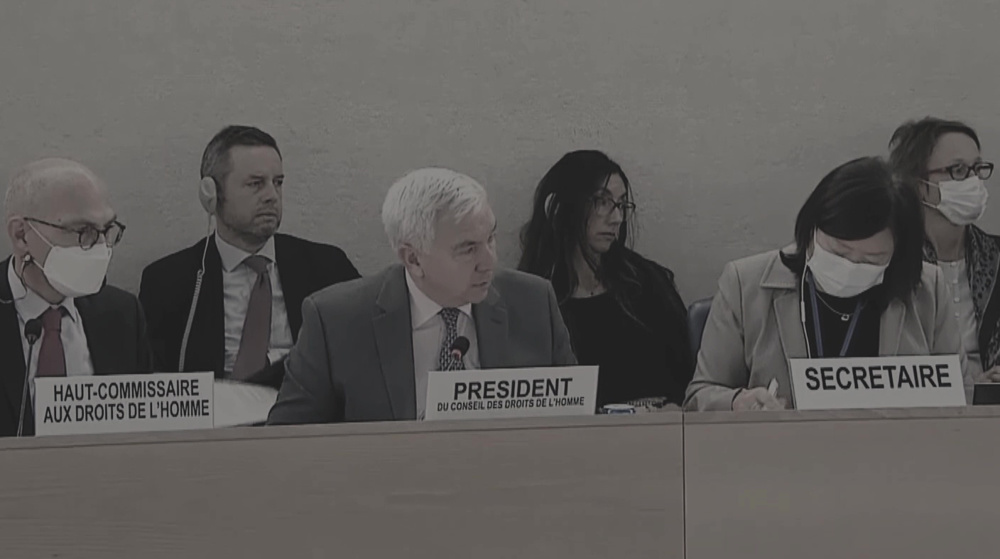

 This makes it easy to access the Press TV website
This makes it easy to access the Press TV website